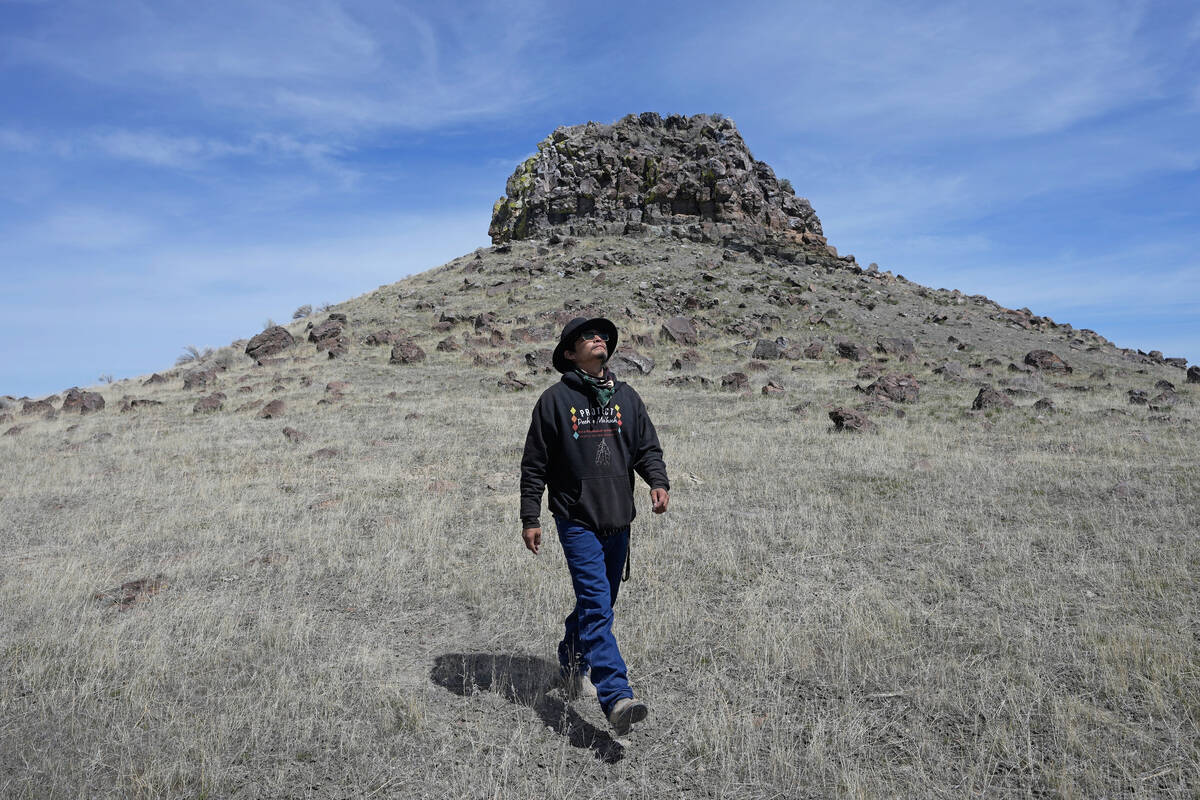Lithium extraction may be a done deal for the Thacker Pass region of Northern Nevada, but not without persistent controversy among some Native Americans and environmentalists.
In a new, 133-page report released by the Human Rights Watch last week, the national nonprofit claims that the federal government’s approval for the 18,000-acre mine is a violation of Indigenous rights. The organization said it interviewed 41 Native people, journalists, lawyers and other experts about the mine’s impact since September 2023.
“The Thacker Pass project shows how U.S. mining laws and the permit process run roughshod over the rights of Indigenous peoples,” Abbey Koenning-Rutherford, a fellow at the nonprofit who prepared the report, said in a statement. “U.S. federal and state mining agencies should urgently review the regulations governing mine permits to bring them in line with international standards on Indigenous peoples’ right to free, prior and informed consent.”
The Energy Department granted the mine a $2.26 billion conditional loan in 2023, and the report authors allege that the Bureau of Land Management failed to properly consult with all affected tribes. The project’s roughly yearlong permitting timeline is far below the agency’s 3.1-year average, according to the nonprofit report.
Some tribal members from the Northern Paiute and Western Shoshone contend that the project is located on an 1865 massacre site known as “Peehee Mu’huh,” a phrase that translates to “rotten moon.”
Lithium Americas, the Canada-based mining company building the mine, said a federal judge ruled against the tribes in 2023, saying there wasn’t enough archaeological evidence to the claim that digging would disrupt burial grounds. The company hired 11 tribal members from the Fort McDermitt Paiute-Shoshone, who aided cultural field surveys.
What is free, prior and informed consent?
Free, prior and informed consent refers to a United Nations standard that holds that Indigenous peoples are able to give or withhold consent for any action that would affect their ancestral homelands or sovereignty.
Then-President Barack Obama signed on to the U.N.’s Declaration of the Rights of Indigenous Peoples in 2010, but it is far from legally binding. Lithium Americas says court decisions have upheld the U.S. government’s interpretation of the law, which is incorporated already into federal permitting processes.
The BLM contacted three tribal governments by mail in its outreach process, according to the report.
Other tribes that were not contacted, including the Reno-Sparks Indian Colony, the Burns Paiute Tribe and the Duck Valley Shoshone-Paiute Tribe, launched legal action against the mine’s permits.
“Consultation is not a letter,” one tribal leader said in the report. “You gotta sit there at the table, straight across the table. But that never happened.”
When a spokesperson was reached Friday, the BLM declined to comment on the nonprofit’s report.
The report highlights tribes’ fraught history with tribal consultation, said Gary Mckinney, a spokesman for People of Red Mountain, an Indigenous rights organization that has led opposition to the mine’s construction.
“That history includes mining, broken treaties, and Indian reservations which were established to assist in unwarranted land degradation caused by mining and livestock grazing on ancestral Paiute, Shoshone and Bannock hunting and gathering landscapes,” he said in a statement.
Mining company refutes report
When asked to address the claims in the report, Lithium Americas shared its official communications with Human Rights Watch from December, which emphasized that it followed proper protocols and has won multiple court battles.
“Your letter mischaracterizes or elides the intensive consultation process and environmental analyses conducted as part of permitting for the Project,” wrote Tim Crowley, a company vice president, in a letter to the nonprofit in December.
The company maintains that its air quality, water pollution and reclamation permits are sound and have not been successfully challenged in court.
Among the other demands in the report, authors call for Congress to reform the 1872 mining law that allows people to claim mineral rights on public lands. They would like to see it brought into compliance with the international human rights law.
The authors call for the BLM to halt construction and rescind the project’s permits and for the Energy Department to pause funding to Lithium Americas.
“The Thacker Pass mine stands as a warning of the risks Indigenous peoples face from such mining,” said Koenning-Rutherford, the report’s author.
Contact Alan Halaly at ahalaly@reviewjournal.com. Follow @AlanHalaly on X.

